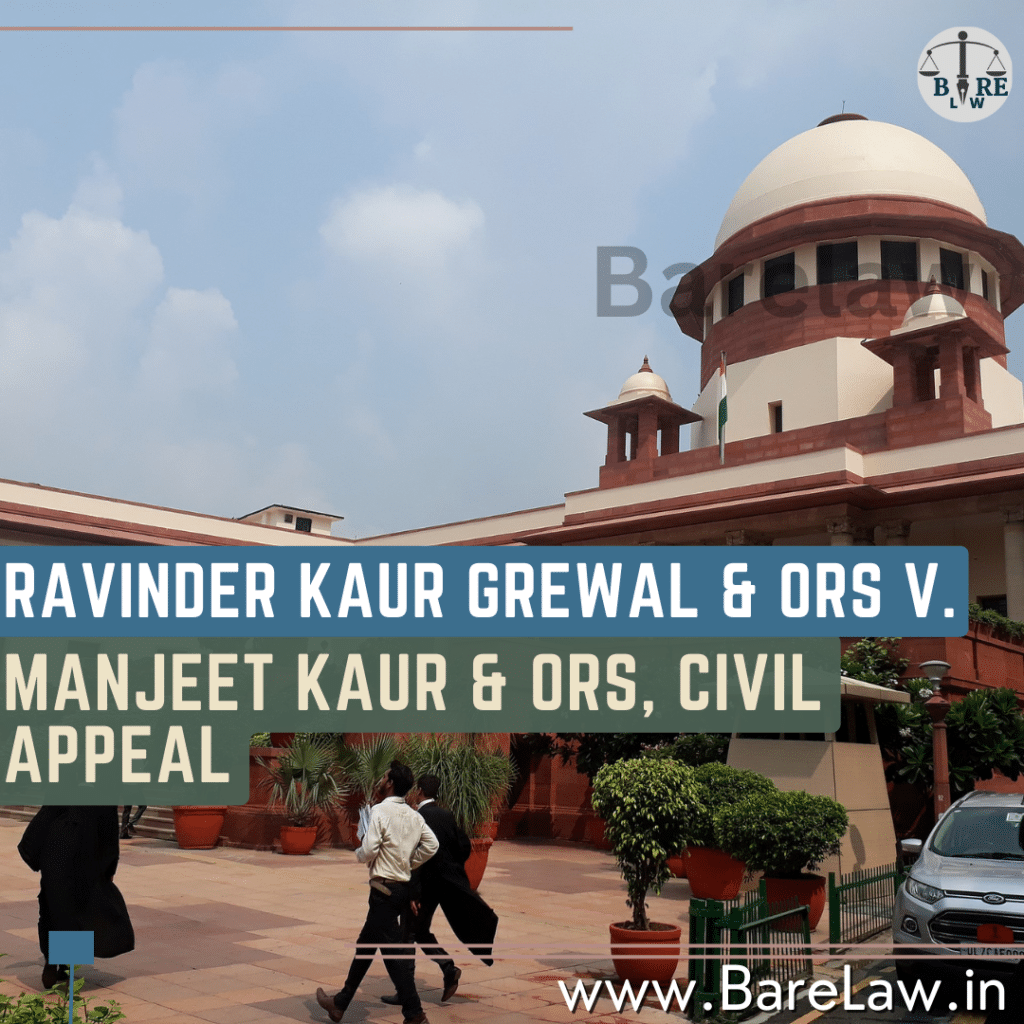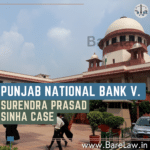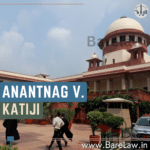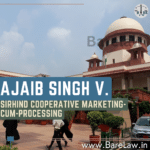
Table of Contents
Ravinder Kaur Grewal & Ors. v. Manjit Kaur & Ors, Civil Appeal No.7764/2014 | BareLaw
The case “Ravinder Kaur Grewal & Ors. v. Manjit Kaur & Ors, Civil Appeal No.7764/2014” is a significant one as it clarifies on the application of the doctrine of adverse possession in Indian property law. This case is important when examining adverse possession which forms part of common law systems and the Indian legal framework.
Background and Legal Context
At its core, this case was about whether Article 65 of the Limitation Act, 1963 allows for an argument on adverse possession to be used only as a defense (a ‘shield’) or it can also be used as a means to assert one’s rights (a ‘sword’) by claiming title to property.
Supreme Court‘s Clarification
Observations made by the Supreme Court and clarifications include;
- Adverse Possession as a Shield and Sword:The court stated that adversed possession could be used not only as defense by defendant but even sword by plaintiff for protecting possession or recovering immovable property in case of dispossession heritor.
- Roots of Adverse Possession: It is based on a philosophy that land should belong to whoever makes best or highest use of it rather than an absentee owner who neglects it.
- Interpretation of Article 65: That said, subsequent decisions have misread this passage, interpreting it as if to suggest that only defendants may avail themselves of adverse possession; but no such express limitation can be found within its four corners.
- Overruling Previous Judgments: Finally, this court held that Gurudwara Sahib was wrongly decided when it ruled that adverse possession could only be pleaded in defence; this interpretation had been followed ever since.
- Right Conferred by Adverse Possession:However, the right acquired through adverse possession may be negative right but still absolute one. It finally decided that suits for recovery of immovable properties are suits based on title, including title acquired through adverse possession.
- Restoration of Possession: The court found that if a person who has perfected his title by adverse possession is dispossessed of the property he can bring suit for recovery.
- Heritability of Adverse Possession: It also said that the right gained by one through adverse possession was heritable and thus could be transferred by tacking to new owners like purchasers or assignees.
Implications and Broader Impact
This judgment has far-reaching implications in property law in India, particularly with regard to cases involving long-standing possession and claims of title. It brings clarity on the use of adverse possession as a legitimate legal strategy for both defending and asserting property rights. Moreover, by acknowledging the heritability and transmissibility of rights acquired through adverse possession, it creates a wider scope for such claims in property disputes.
In conclusion, “Ravinder Kaur Grewal & Ors. v. Manjit Kaur & Ors.” is a landmark judgement that redefines the applicability and reach of the doctrine of adverse possession in Indian jurisprudence so as to balance between long term possessors’ interests vis-à-vis legal title holders’.





